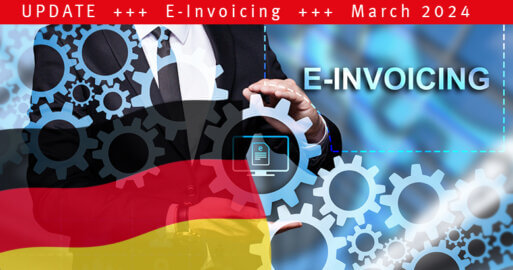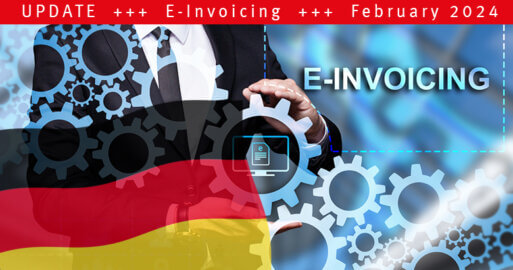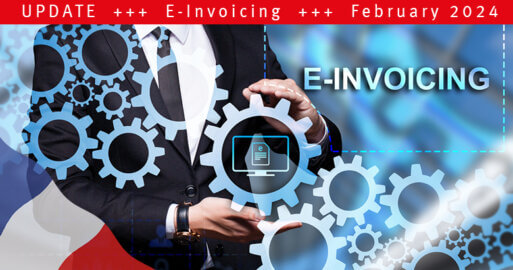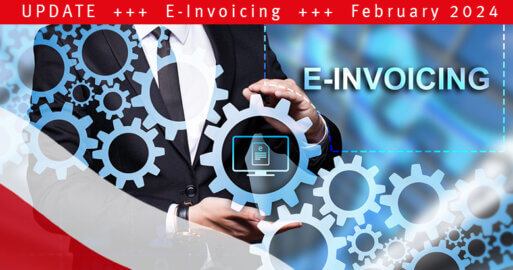EU-Compendium e-Invoicing and Retention New version of the practical handbook on VAT rules for e-Invoices in the EU published
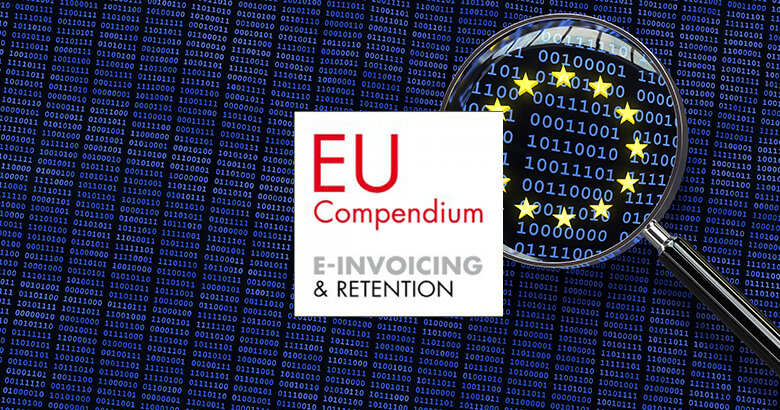
The EU Compendium e-Invoicing & Retention was developed under the leadership of the Munich-based law firm PSP and provides a quick overview of the most important questions and answers regarding the VAT requirements for invoices, the processing of electronic invoices and the storage and retention of invoices in the EU. The current version takes into account the constantly advancing local developments for the implementation of the European e-invoice directive 2014/55/EU into national law and considers the regulations in 19 European countries.
The VAT rules for e-invoicing in Europe vary from country to country. Maintaining an overview is a challenge for all companies that operate across borders. At the Exchange Summit 2019 in Vienna the topics relating to the development of global e-invoicing were met with great interest. Italy is the current leader in B2B e-invoicing, followed by France. Greece is also far ahead in electronic invoicing.
The EU Compendium, which compiles a clear overview of the VAT regulations for e-bills in the 19 most important European countries, answers some important questions around the:
- minimum VAT requirements for invoices
- processing procedure for electronic invoicing
- storage and keeping of invoices
In the new version 4.0, the detailed information on the existing VAT rules of the 19 European countries under review has been updated. The current version also provides an overview of the constantly progressing developments regarding the implementation of the European e-invoicing directive 2014/55/EU into national law. The complete EU Compendium e-Invoicing and Retention is available for download on PSP’s website.
The major challenge for each country is to implement and operate the EU mandate applicable to their own country, and in doing so:
- to create the legal framework
- define binding implementation deadlines with scopes, transitional arrangements and exclusions
- to provide and operate the necessary infrastructure to centrally process all invoices to be reported to a central authority
- to meet the obligation in specifying data structures and transmission paths for data exchange
- to ensure that trading partners from other countries respect the mandate in cross-border trade with their own country
- to be able to meet all requirements for handling electronic incoming and outgoing invoices and other data formats and communication channels
The SEEBURGER BIS E-Invoicing Solution offers control over the processing of incoming and outgoing invoices as well as extensions for deep process integration with any ERP system. We are your experienced cloud partner who understands and meets the various requirements of different countries in the EU and elsewhere with a one-stop solution.
Thank you for your message
We appreciate your interest in SEEBURGER
Get in contact with us:
Please enter details about your project in the message section so we can direct your inquiry to the right consultant.
Written by: Rolf Wessel
Rolf Wessel has been product manager at SEEBURGER for software applications and services for electronic business data exchange since 2010. His focus is on solutions for SAP, electronic invoicing (e-invoicing) and innovations for the digitalization of business and technical business processes. The Forum elektronische Rechnung Deutschland (FeRD) appointed Rolf Wessel as an expert. As project manager at the United Nations Centre for Trade Facilitation and Electronic Business (UN/CEFACT), he develops international trade facilitation and establishes standards for electronic business processes. Furthermore, he represents the German delegation of the FeRD at the Franco-German workshop with the Forum National de la Facture Electronique (FNFE) and thus supports the government initiative for international standardization and harmonization of e-invoicing processes. He is a member of the working committee "Electronic Business" at the German Institute for Standardization. (DIN) and Association for Electronic Invoicing (VeR). Rolf Wessel graduated in business informatics (FH) with a focus on financial management and production planning. After working in the electrical, financial, consumer goods, software and mineral oil industries, he had been a systems analyst and IT project manager in the retail and logistics sector from 2003 to 2010.

